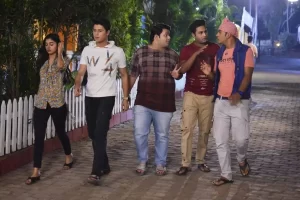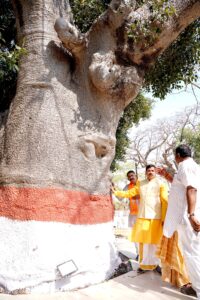
Madhya Pradesh Chief Minister Dr. Mohan Yadav has said that action is being taken in accordance with the Supreme Court’s directives for the disposal of Bhopal-based Union Carbide waste in Pithampur. The disposal of waste will be carried out carefully while addressing the public concerns.
CM Dr. Yadav said that after four decades of the tragedy, the harmful effects of about 337 metric tonnes of waste kept in Bhopal will finally come to an end. He said that more than 60 percent of the remaining waste is only local soil, 40 percent is waste of 7-naphthol, reactor residues and semi-processed pesticides.
The 7-naphthol residue present in it is basically a co-product of the process of making methyl isocyanate and pesticides. Experts believe that its toxic effect ends almost in 25 years. CM Dr. Yadav said this in an interaction with the media at the CM’s residence on Thursday.
CM Mohan Yadav said that the process of waste disposal has been thoroughly tested from time to time by various institutions of the Central Government such as NEERI (National Environmental Engineering Research Institute), Nagpur, NGRI (National Geophysical Research Institute) Hyderabad, IICT (Indian Institute of Chemical Technology) and Central Pollution Control Board.
Trial run of UC like waste was successful
CM said that on the basis of their study and reports submitted to the Supreme Court, as per the instructions given by SC to the Ministry of Environment of the Government of India in March 2013, 10 tonnes of Union Carbide-like waste from Hindustan Insecticide Limited, Kochi, Kerala was transported and a trial run was conducted at TSDF in Pithampur under the supervision of the Central Pollution Control Board. The report of the successful trial run was presented to the Supreme Court.
CM Mohan Yadav informed that on the basis of the findings of the trial run, the Supreme Court directed in April 2014 that another trial run of 10 metric tonnes of UCIL waste be conducted at TSDF Pithampur under the supervision of the Government of India, Ministry of Environment, Forest and Climate Change, New Delhi. The Supreme Court had also directed to ensure videography of this trial run.
As per the instructions, after the trial run in August 2015, the entire report of experimental disposal was presented to the Supreme Court by the Central Pollution Control Board. It was clear from the reports that the disposal of this type of waste has not caused any harm to the environment. The Supreme Court issued instructions to proceed with the disposal of UCIL waste and destroy it only after a thorough examination of all the reports.
Apart from the instructions being given by the Supreme Court from time to time regarding the action of waste disposal, the Chief Secretary of Madhya Pradesh conducted a separate investigation on the basis of three points in detail.
Health related tests in the surrounding villages, effect on crop productivity and quality of regional water sources were carried out. In the test of all three points, it was found that no negative results were reflected due to the disposal of UCIL waste.
CM told that the government is fully sensitive towards the process of waste disposal. The action of disposal will be done under the continuous monitoring of Central Pollution Control Board, Madhya Pradesh State Pollution Control Board as well as all the concerned teams.





